A person of restless intensity
Doug Banks was indeed a remarkable man. He had an unquenchable enthusiasm for life, constantly searching for truth, for finding the solution he just knew existed to every challenge. He will be remembered for his self-confidence, his fierce intellect, his humility, his integrity, his zeal and energy for the Renewable Energy cause he believed in, and his ability to inspire and encourage others to join him in that cause.
“What you saw was what you got – a brilliant intellect, a curious and insatiable mind, driven by a sensitive, humble and fun loving heart - indeed a man of principle and integrity.”
- Dave Gale , lifelong friend.
Early years
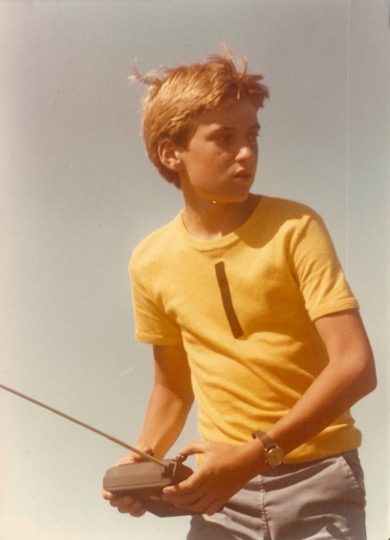
In 1979 Doug won the Open Scholarship to attend Hilton College near Pietermaritzburg. While developing an incisive intellect, he proved to be a menace to any teacher whose facts or logic was slightly shaky. The years were filled with academic challenges.
He was placed second in the country in the National Maths Olympiad and attended an International Science Week in London in 1982.
Doug's interest in alternative energy was first kindled when as a twelve-year-old he constructed a solar water heater, using a damaged panel and an old round boiler tank wrapped up in insulation. This somewhat ugly contraption mounted on the roof of the family house in Howick, KwaZulu-Natal, delivered hot water to their kitchen until the family relocated to the Western Cape in 1983 and Doug set off to study mechanical engineering at the University of Cape Town (UCT).
In addition to the budding engineering project he was fortunate to develop a number of skills which included playing piano & flute, but especially learning woodwork and workshop skills from his father and pottery skills from his mother, all of which contributed to his understanding of and hands-on attention to technical detail during the years ahead.
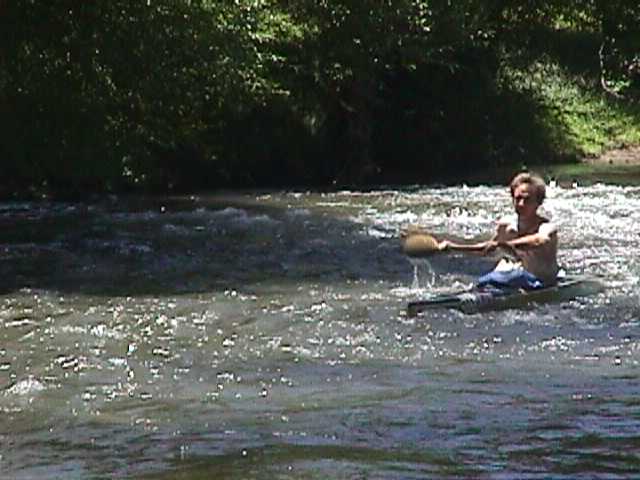
The Umgeni River was the lower border of their garden and so there was a paddle in his hand as soon as he was old enough to sit in a canoe. Many hours were spent challenging the power of the water, often with the river in flood. If he wasn’t canoeing, he was camping, hiking, fishing or climbing in the Drakensberg.
Sun, water and wind became the inspiration for his career and passion for renewable energy.
Student Days
Hilton days at an end, Doug headed down to the University of Cape Town in 1983 to study mechanical engineering. Four years of intense study interspersed with madcap adventures resulted in a BSc Mech. Eng. with first class honours. Doug was always instigating cycling trips around the peninsula, fishing or kloofing expeditions in the Cape mountains, riding the Argus Cycle Tour on a pennyfarthing, or hiking up Table Mountain in the pouring rain. His enthusiasm for life was infectious and he always managed to persuade someone to join him. Among these was his future wife, Hélène van der Merwe, an architecture student at UCT.
Post-graduate years
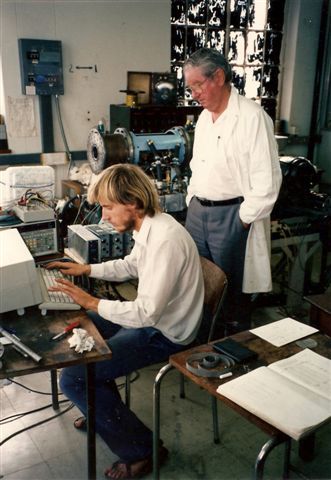
A condition of his Anglo-American bursary had Doug working on the gold mines in Orkney for a year after graduating from UCT. At this time, Doug joined the End Conscription Campaign, fighting a protracted battle with the authorities to be allowed to undertake community service instead of military service on moral as opposed to religious grounds, which was refused.
He registered for a Masters degree at the University of the Witwatersrand (Wits) in Johannesburg, where he was deeply influenced by his mentors, the late Prof. Costa Rallis and Dr. Harald Jawurek. His PhD topic focused on the external combustion Stirling engine, in which Doug had become interested because of its potential alternative technology applications.
Later, as a Wits staff member, he went to live at the Wits Rural Facility in Mpumalanga, where he developed a deep empathy for the poor and their need for sustainable energy sources.
In December 1992, Doug married Hélène van der Merwe. Doug went on to complete his PhD, writing much of his thesis using a computer powered by wind and sun while he and Hélène renovated the Van der Merwe family’s holiday house at Betty’s Bay in the Western Cape.
Dr Grant Ballard-Tremeer, now director of E Co, a sustainable energy consulting company based in London, had this to say of Doug during this period:
“Doug was supervisor and mentor in both my undergraduate and postgraduate studies at the University of the Witwatersrand. His commitment, respect and integrity when working with poor people stood out and impressed me greatly as a young student. I remember fondly doing my best to follow his lead in negotiating with village chiefs and learning to understand, through an interpreter, what people were saying, feeling and thinking. Memories of his pottery evenings and dinners cooked over a biogas flame from his experimental digester outside his hut at the University's Wits Rural facility in 1991 are sure to last all my life.”Professional life
Doug spent four years working at UCT's Energy and Development Research Centre (EDRC) doing energy policy research, which put him in a good position for his next job at Rural Areas Power Solutions (RAPS) in Pretoria. Here he could start to put the theory into practice, building up an initial three person enterprise to a team of twelve people. He became the Technical Director and a partner in the business.
During this time he was instrumental in establishing NuRa, or the Nuon-Raps Utility, which is still one of the largest sustainable off-grid renewable energy operations in Africa. A new model of co-operation between the public and private sectors and a foreign donor, brought together the South African energy utility Eskom, the Dutch Energy utility Nuon and Rural Areas Power Solutions in an effective partnership.
With 20,000 rural KZN households as solar home system (SHS) customers, selling over 60 tons of liquid petroleum gas (LPG) each month and employing over 70 people, NuRa has made a huge impact on the lives of thousands of people within this region. He was influential in formulating this approach to subsidise and provide electricity for rural households in South Africa, designing and commercialising the specialised equipment necessary.
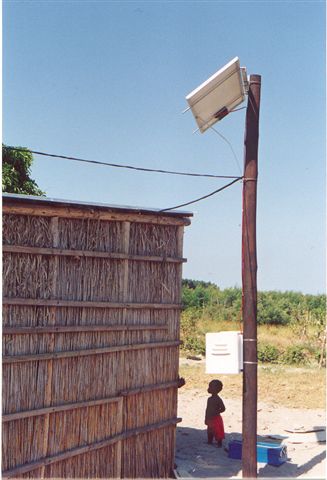
He became an authority on photovoltaic SHS programmes, and reviewed various international SHS programmes in Uganda, Tanzania and other regions for the United Nations Development Programme. He co-authored a book on the topic of SHS finance and institutional models. His team designed and managed the first post-independence Schools and Clinics Solar Electrification programme in Madagascar for the World Bank. This led to contributions to the formulation of Standard Energy Packages for the Health, Education and Water sectors in Uganda, Tanzania and Kenya.
Commissioned by Earthlife Africa, Doug and Jason Schaffler (Nano Energy) produced a groundbreaking investigation into the potential contribution of Renewable Energy to South Africa’s future energy supply in 2005. The outcome attracted broad interest within South Africa and beyond as it vividly demonstrated how the ‘business as usual’ scenario would result in increasing reliance on fossil fuels whereas the ‘progressive renewable scenario’ would significantly decrease the contributions of fossil fuels to South Africa’s energy mix. The study is still quoted and referenced today notably with reference to the tracking of actual renewable energy uptake in line with the proposed long term progressive renewable energy trajectory. Renewable energy has developed tremendously as envisioned at that time and is poised for even greater growth.
Staying with policy, Doug and Jason prepared a ‘Renewable Energy Plan of Action’ for the Western Cape Provincial Government in 2007. In contributing to the broader Sustainable Energy Strategy (SES), the plan of action clearly outlined the viability of a 15% renewable electricity target by 2014 based on an analysis of six different scenarios and highlighted the challenges that would need to be overcome in order to deliver on this strategy. This plan of action was the first of its kind in South Africa.
This future energy scenario work was taken further to form the basis of a Renewable Energy Presidential Briefing Paper presented in August 2008, and was dedicated to the memory of Doug by his co-authors.
Doug provided the entire analytical framework for the project team in the Development of a Rural Electrification Master Plan for Uganda, a long process initiated in 2004 and finally completed just a few weeks before his death. He undertook countless studies costing Renewable Energy (RE) technology options and sat on various SA Standards Committees for RE.
His final project, as yet unfinished in 2008, was a logical successor to most of his previous work. Developing a concept called the Integrated Rural Energy Utility (IREU). Doug envisaged grid and non-grid energy providers working effectively together, rather than in competition for resources, to bring energy services to rural households, institutions and economic productive use sectors.
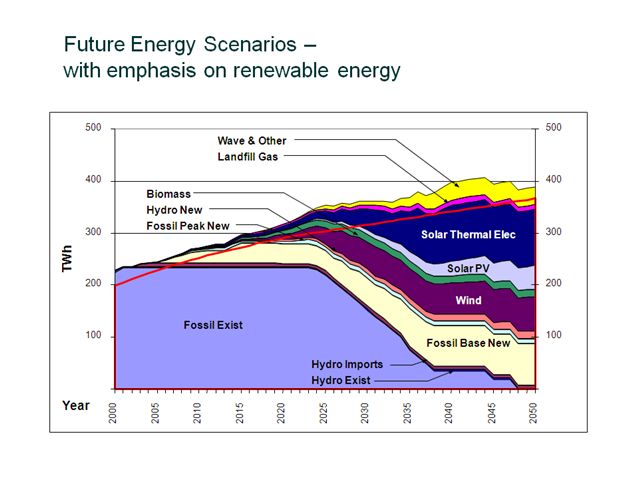
In the words of a colleague and fellow engineer, Chris Purcell:
“Doug was rigorous, accurate and above all honest to a tee in his work and analysis. He was the definitive independent consultant, able to be immersed in a programme, yet able to review it very credibly and with integrity. It is indeed quite unique that he was often trusted to do this.”Restio Energy
In 2005 Doug bought out his part of the business (RAPS Consulting) and moved to Cape Town. RAPS Consulting was re-launched as Restio Energy. True to commitment to reduce his daily travel footprint, the office was located firstly a few blocks away and finally in a house adjoining his Mowbray home. Despite his enthusiasm for his work, including demanding amounts of foreign travel, Doug still managed to keep clearly focused on the most important people in his life: his family. While away, even from the most remote places, he managed to send illustrated updates to his wife, three children and extended family.
Leaving a legacy of Mentorship
It is a tribute to Doug’s passion for inspiring and mentoring others that a number of young professionals, one a Massachusetts Institute of Technology (MIT) graduate who went on to work for the World Bank, another becoming CEO of an electric car company, all attribute Doug’s influence on their lives as having shaped their decisions to follow their chosen careers in Renewable Energy.
After Doug’s death, emails were received from people across the globe expressing sadness at his passing. Many indicated that a brief encounter of a matter of hours or days, at a conference or on a field trip, had made a lasting impression.
Sadly, it was partly his frequent trips to remote locations that were instrumental in a late diagnosis of aggressive liver cancer. Always tenacious, never one to give up easily, Doug fought the disease to the end, always more concerned about his family and friends than his own well-being.
Doug will indeed be sorely missed. We wish the Doug Banks Renewable Energy Vision to be a tribute to his life, a life lived to the full.
To access many of the reports and work done by Doug, please visit the Restio Energy website where they are available for download.
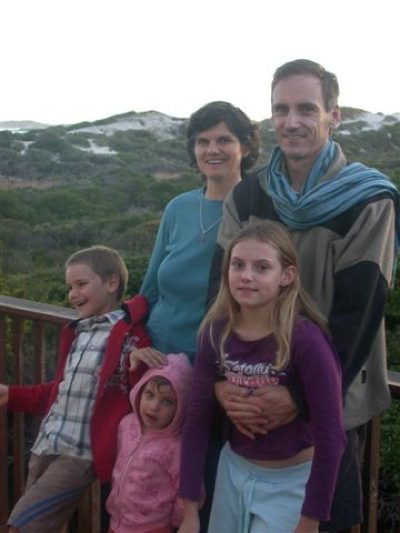
The Banks family – 2007.
Katherine Steel, who was an intern with RAPS and who went on to complete her PhD at MIT and work for the World Bank, wrote:
“You have been the single greatest influence on my professional life and in some ways on my personal life as well...no matter how much you loved your work, you always cared most about your family and I wanted to do the same.”Jit Bhattacharya, also a former intern, who has since completed a second Masters degree from Berkeley, and is now CEO of his own electric vehicle company, said:
“You introduced me to energy and development and it is the first career path I am truly passionate about. You have been such an inspiration in my life, both as a professional and as a friend. It is a gift I will never be able to fully repay.”Jan Glazewski, UCT Professor and friend, speaking at the funeral:
"It struck me after listening to other tributes, that Doug was a brilliant academic. But he chose not to enter the comfortable and sometimes ivory-tower'ish world of academia. Rather he chose the front line, living in and travelling to remote areas where there is no access to the national power grid, mentoring and assisting people to ensure that things happened on the ground."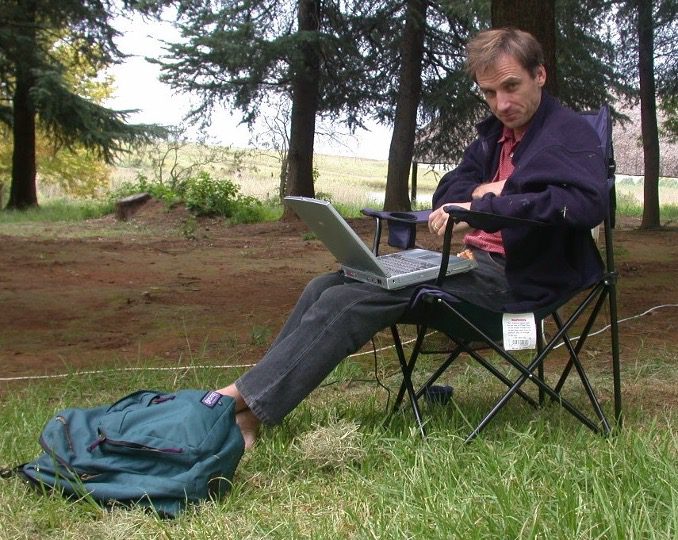
Off-grid office, KZN 2005 [photo – Banks family]

